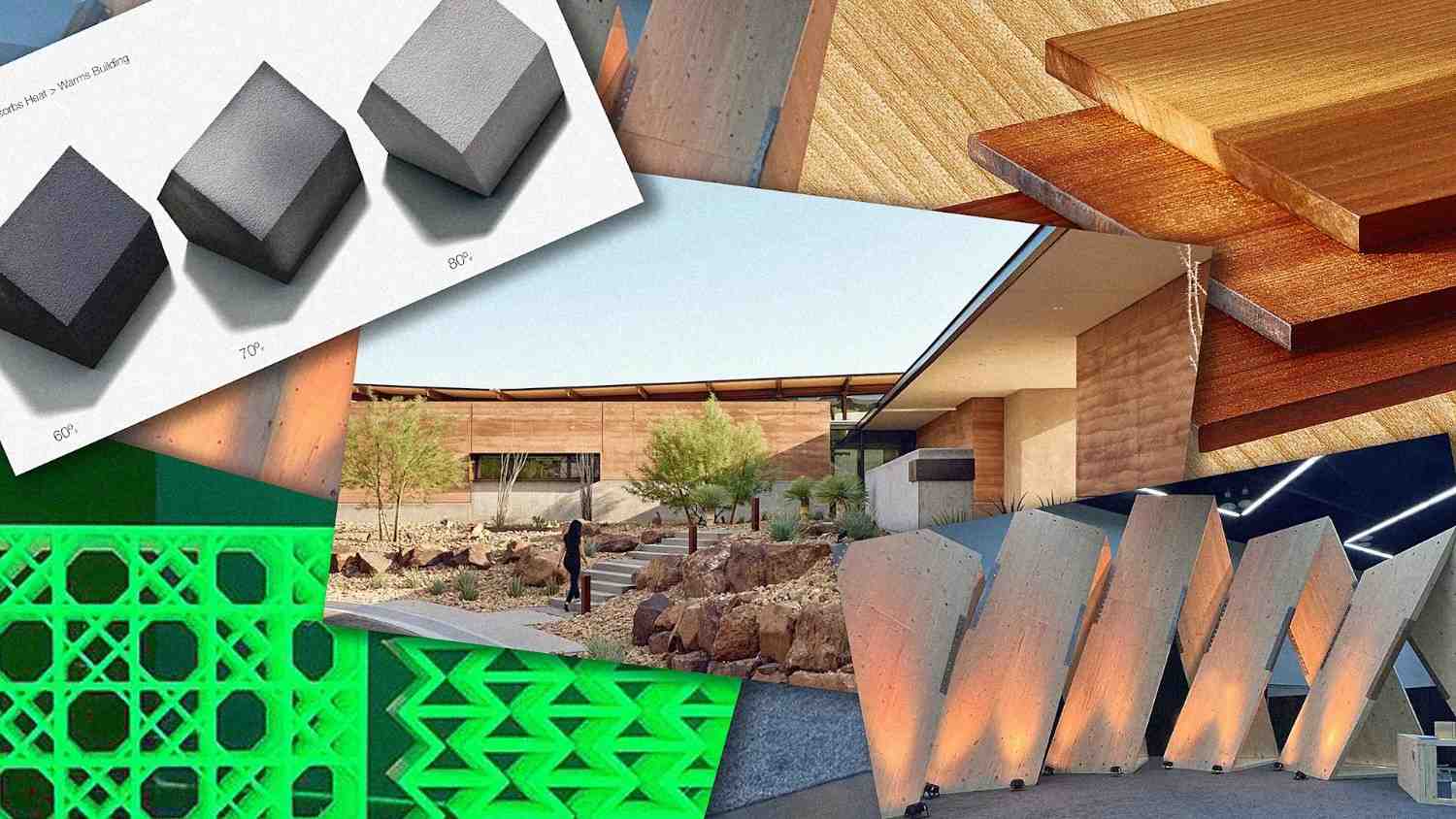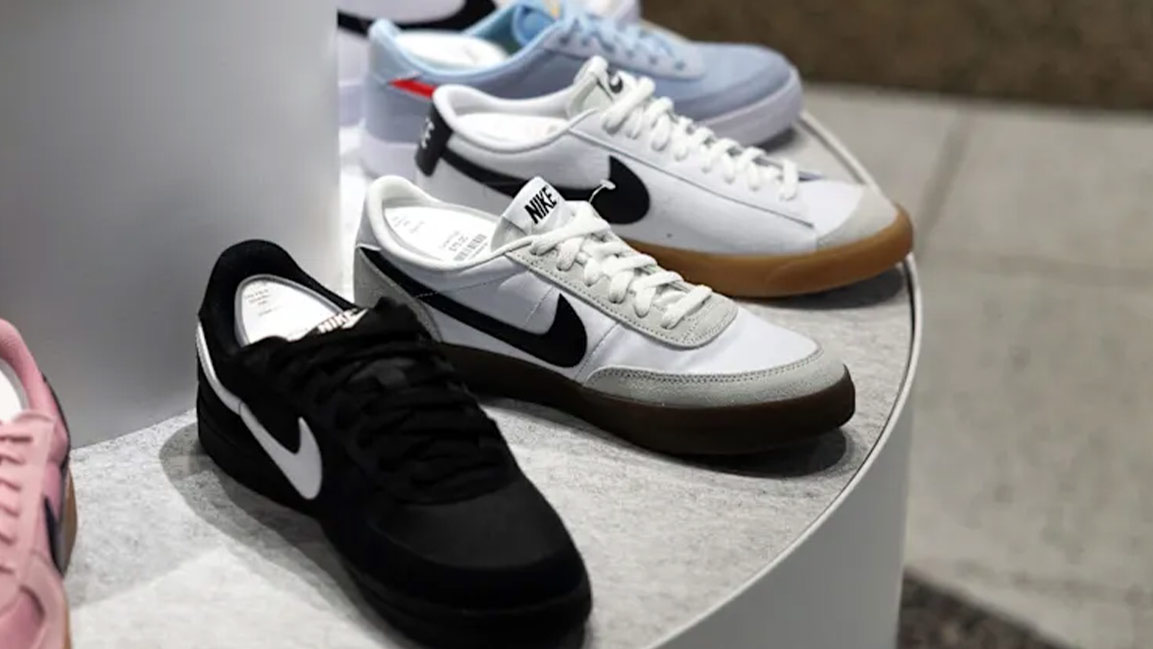- | 8:00 am
Ralph Lauren’s new AI app is paving the way for a shopping revolution
The 58-year-old fashion brand partnered with Microsoft to create Ask Ralph, an AI agent that mimics the experience of speaking with a stylist.
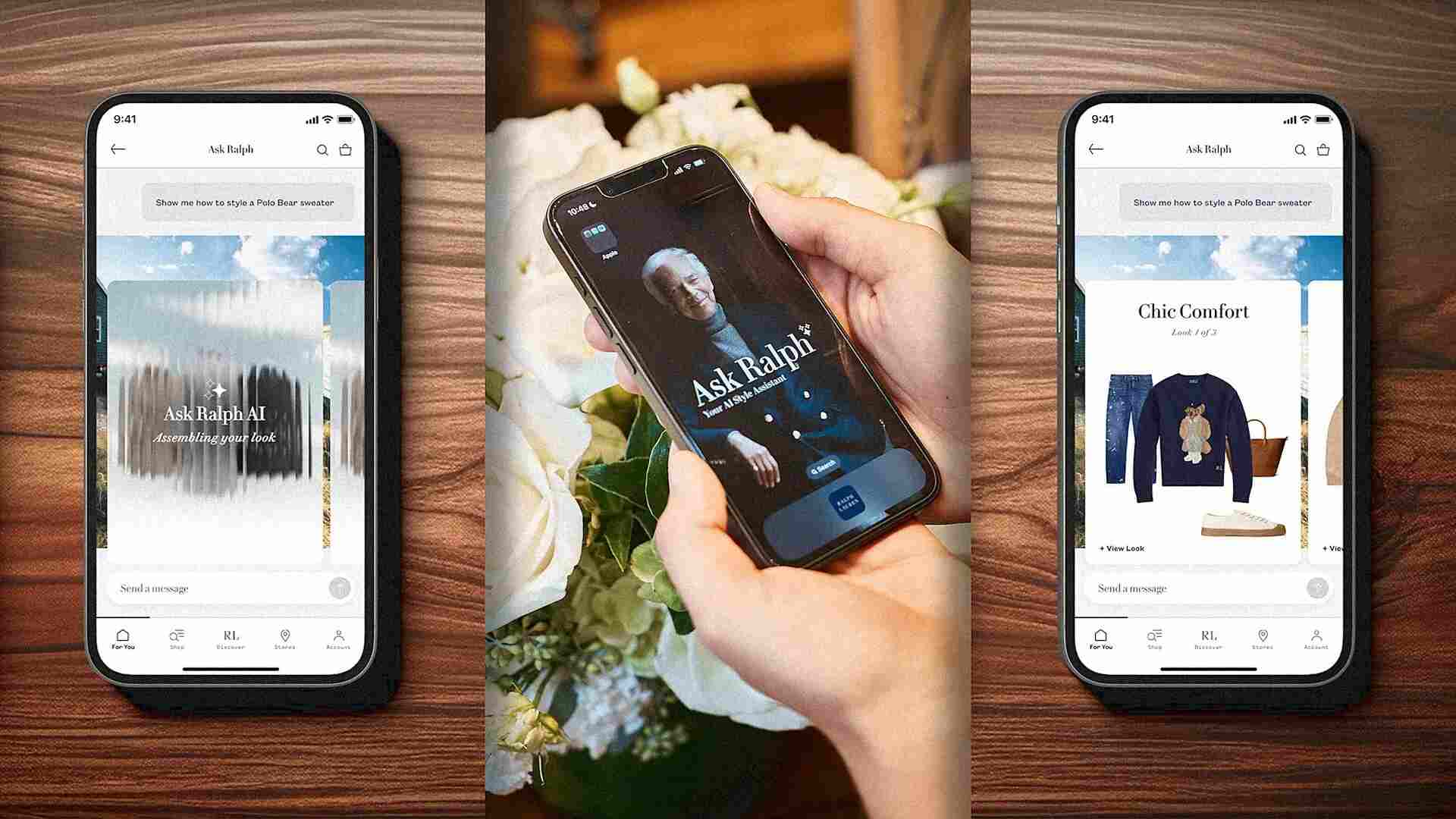
In the early 2000s, fashion brands had a realization: They could throw their inventory up on a website and ask customers to sift through it to find what they were looking for. Two decades later, the fundamental structure of e-commerce hasn’t changed much. Shopping is a drag that involves endlessly scrolling for merchandise.
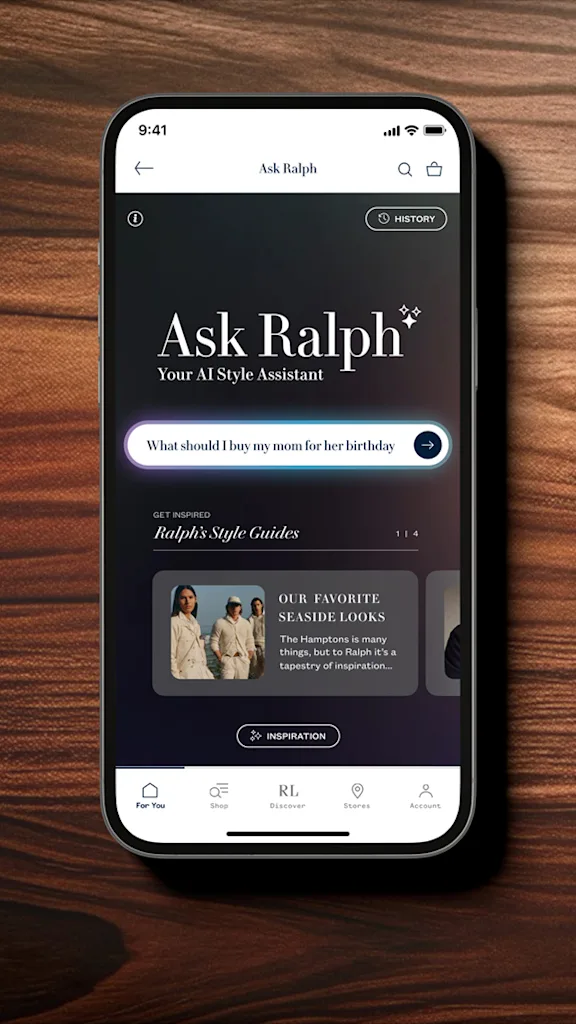
But change is in the air. AI is about to transform everything about online shopping. Consumers are already turning to chatbots to find and compare products, and to platforms like Daydream that are designed specifically for shopping for clothes. Now, we’re about to see how fashion labels themselves can use AI to make shopping on their sites less laborious and more delightful.
Today, Ralph Lauren launches Ask Ralph, an AI stylist in the brand’s mobile app. The 58-year-old fashion brand has partnered with Microsoft to create an AI agent that mimics the experience of speaking with an stylist. You begin by expressing exactly what you’re looking for. Depending on the day, it might be specific like, “I’m looking for a black cardigan for the fall,” or open-ended like, “I’m moderating a panel at a big conference and I have no idea what to wear.”
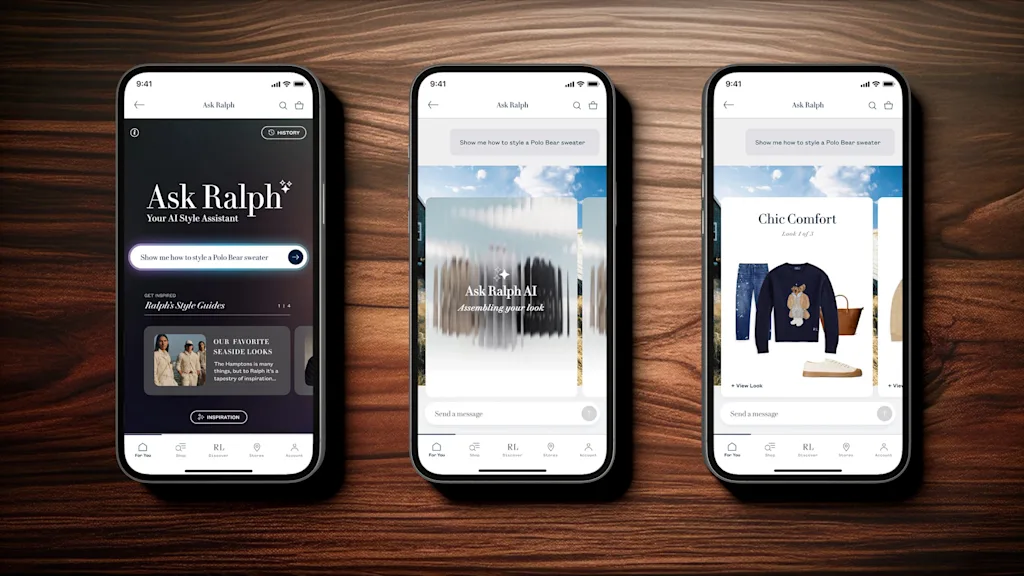
Then, rather than sifting through rows of products, the app does the searching for you. It delivers fully styled looks from the current Ralph Lauren collection that you can shop immediately. And through the process, as you figure out what you’re looking for (say, cropped cardigans made of cashmere), the AI adapts to your preferences. “We’re trying to recreate the experience of working with a well-trained Ralph Lauren salesperson,” says David Lauren, chief branding and innovation officer at Ralph Lauren, and son of the founder. “We’ve taken all of our own best practices and built them into the AI.”
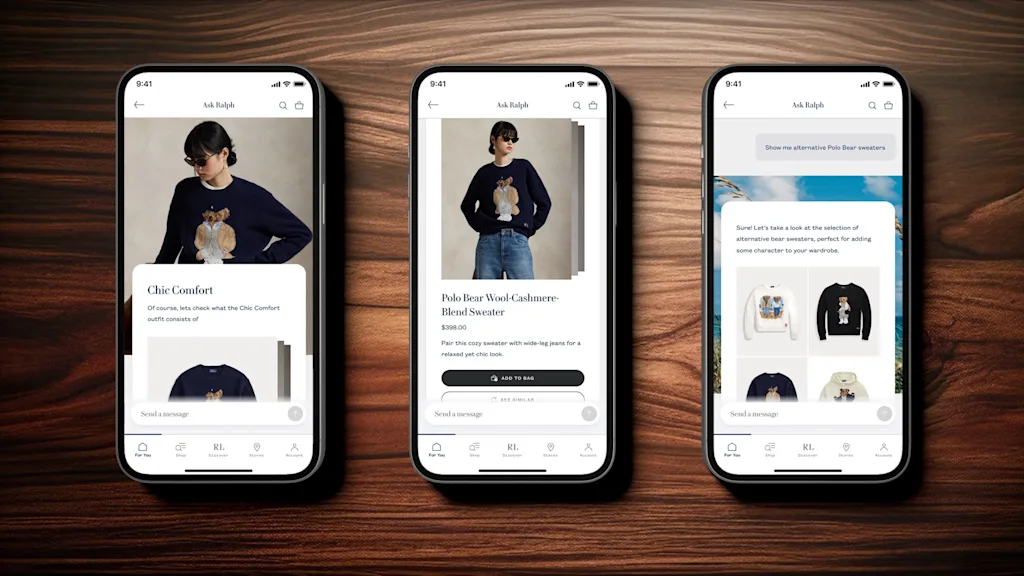
An Early Adopter
This isn’t Ralph Lauren’s first partnership with Microsoft. Twenty-five years ago, David appeared on stage with Bill Gates to unveil Polo.com, the very first Ralph Lauren website. This was a time when few other fashion brands had any online presence at all.
David has always been interested in adopting new technologies early. Shortly after the new website debuted, David partnered with NBC to build an online magazine full of videos and articles to blend content with commerce; in the following years, it would become common for brands to launch blogs on their website. And Ralph Lauren was among the first fashion brand to place QR codes in billboard and print ads to send consumers to its website. “We did this before most phones were able to read QR codes,” says David. “But people quickly caught up.”
Ralph Lauren has been toying with the idea of a digital stylist for a long time. In the early 2000s, that early version of the e-commerce website had an “Ask Ralph” feature, where you could read content about how to put a Ralph Lauren look together, and even a video streaming service where you could talk to a salesperson in a showroom. “What we didn’t have at the time was AI,” David says. “We realized that AI could help us realize many of the concepts we had dreamt about back then.”
To train the Ask Ralph model, Microsoft used data from Ralph Lauren’s archives and current collections to help identify the brand’s distinct aesthetic. Ralph Lauren’s creative team, from designers to in-store stylists, participated in the process to make sure that the app would create highly curated looks that reflect the brand’s take on styling.
Then, members of the in-store team were asked to contribute insights about how they work with a customer to help them find pieces. Once they had created a beta version of the app, they asked employees to use it and offer feedback.
The final version of the app uses conversational AI and natural language processing to understand open-ended prompts from the user. It also incorporates the customer’s shopping history, so that it can understand their preferences and pick pieces that match what they already have in their closet.
The app can interpret context: It can identify whether the customer is trying to quickly buy a shirt to match an existing blazer, or whether they are just playing around to find new ideas for outfits. It also only shows pieces of clothing that are currently available for purchase, and over time, the app will adapt to the user.
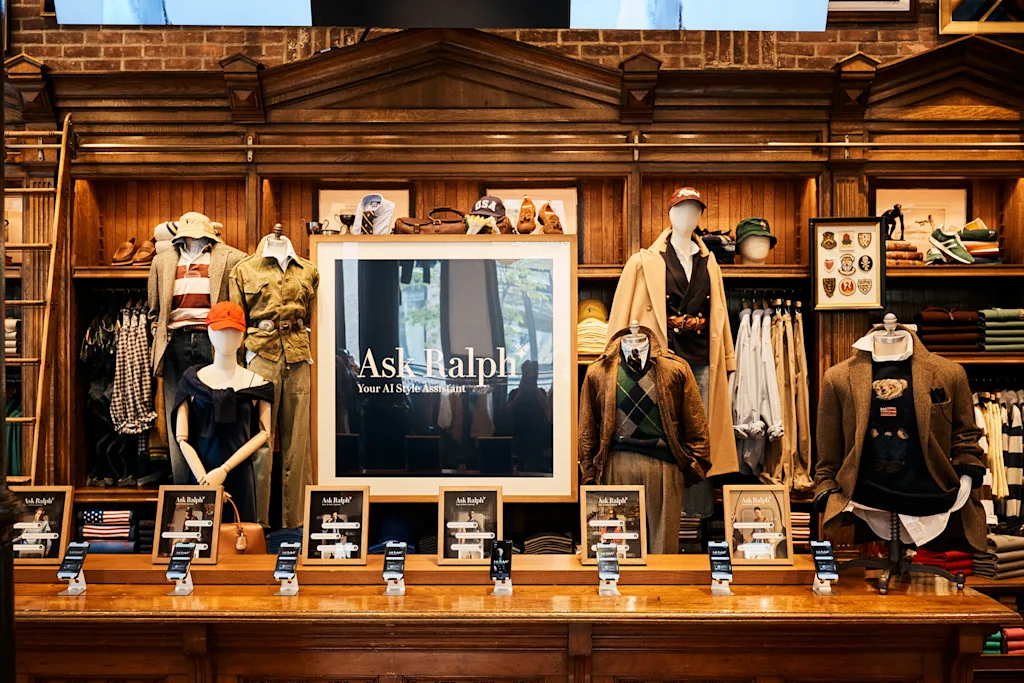
The Industry Shift
While Ralph Lauren is an early adopter of AI technology, many fashion brands are building their own apps, says Shelley Bransten, corporate VP of global industry solutions at Microsoft. She says that the fashion industry is now shifting from “scroll-based” shopping, which involves looking through rows of thumbnails, to “goal-based” shopping, which deploys AI to surface results based on the customer’s specific needs at that moment. “The shopping experience is going to be more personalized, relevant, and more tied to the customer’s intent,” she says.
Bransten says that many consumers have gotten so used to using AI agents like ChatGPT that they no longer remember how to use search boxes on websites. Instead, they type out full queries into search boxes, only to confuse the system. But companies that have made the leap to using AI on their e-commerce sites are already seeing more success. “They’re seeing higher conversion rates, units per transaction, and consumer happiness scores,” she says.
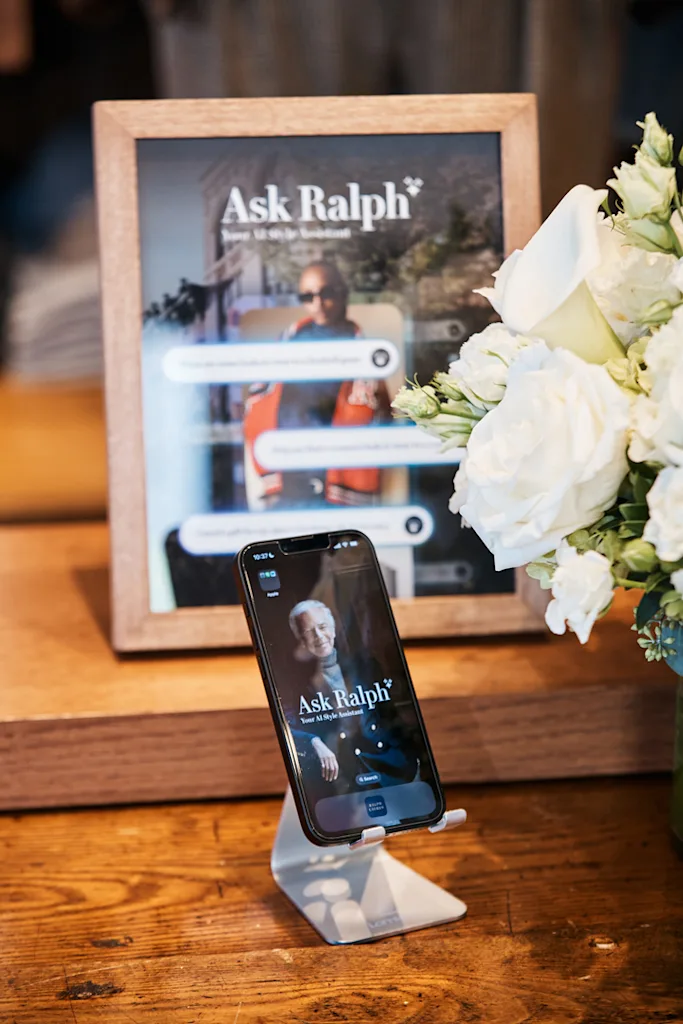
At the same time, we should expect more general AI agents to improve. I recently wrote about Daydream, a shopping platform that allows you to describe what it is you’re looking for, then searches for pieces from hundreds of brands. It will tailor the results to your size, personal preferences, and budget. Soon, platforms like this are likely to replace searching for clothes on Google, but David believes that some customers will still want to search directly on brand websites. “We have loyal, long-term customers who trust us,” he says. “Ask Ralph is another way to deepen this relationship.”
Ask Ralph is designed to make shopping less time-consuming for the customer, but David also believes it is an opportunity for Ralph Lauren to stand out by emphasizing the brand’s unique point of view. The app will curate looks that are very carefully aligned with the distinct Ralph Lauren aesthetic, and in doing so, will allow customers to enter the brand’s universe. “Our customers come to us because they like our point of view,” David says. “We can help them create the look that they want more directly.”
The app could also be a way to bring new customers in. While it is designed to make the purchasing process easier, David hopes that it is also a useful free tool for anyone looking for help to get dressed in the morning. If you already have a blue blazer and turn to the Ask Ralph app for interesting ways to style it, the app will curate looks drawn from Ralph Lauren’s archives and style guide.
“People still read fashion magazines and blogs to look for tips about how to dress,” David says. “I think of the Ask Ralph app as a kind of style book. It helps you figure out how to put a look together in the morning.”















